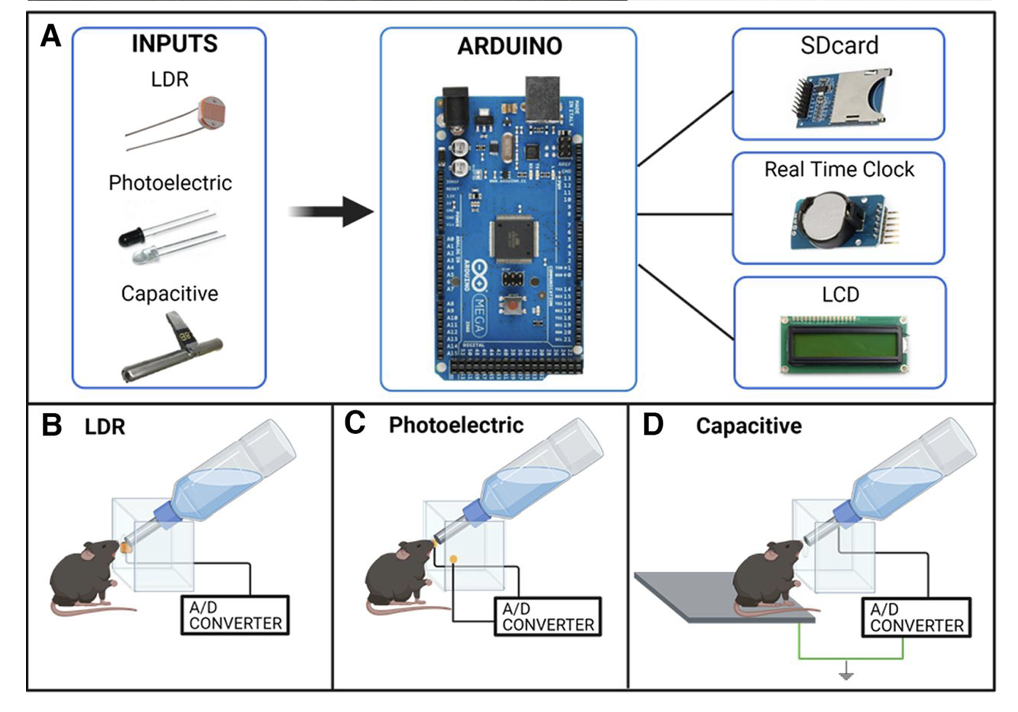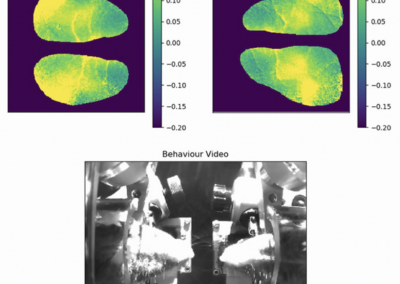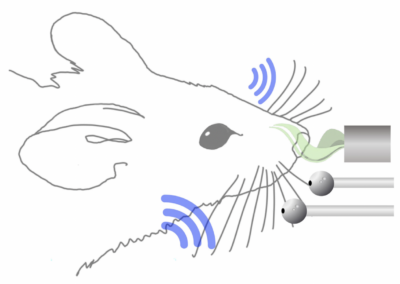Lickometer Box

While the current understanding of drinking behavior has rapidly evolved over time and research on the subject has become more widespread, the devices we use to measure complexities of this behavior have failed to keep up. Dr. Mariana Cardoso Melo and colleagues from the Federal University of São Paulo in Brazil developed a Lickometer, which offers an innovative and low-cost solution to measuring the complexities and microstructures of drinking behavior. Making use of Arduino microcontrollers, the device would be capable of wirelessly receiving data from 8 automated cages each with 2 drinking bottles, simultaneously. There are three different prototypes that use different sensors (light-dependent resistor, photoelectric, and capacitive) that allow for flexibility to better fit specific needs of a given research project. The project uses Arduino MEGA for A/D conversion of the sensor’s signal, an SD card to store data, a real-time clock for precise measurement of behavioral events, and an LCD to track the date and time of licks. Originally published on GitHub in June 2021, the MATLAB code for the project is freely available.
This research tool was created by your colleagues. Please acknowledge the Principal Investigator, cite the article in which the tool was described, and include an RRID in the Materials and Methods of your future publications. RRID: SCR_025248
Special thanks to Garrett Denney, a neuroscience undergraduate at American University, for providing this project summary.

Access the code from GitHub!
Check out the repository on GitHub.





